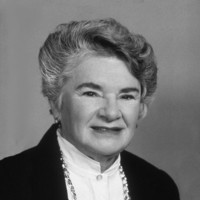Dear Ms. Lank: We would like to move to a senior center in my son's area. We inherited our home from my wife's grandmother. It was a family farmhouse. I have no idea what it cost. We live in a neighborhood of expensive houses; it should sell for quite a lot. There is no mortgage. Our daughter says we wouldn't have to pay any income tax if we sold it. That sounds too good to be true.
I wouldn't even know how to start to figure what our profit would be. Can you give us any direction? — P. I.
Answer: The tax news is all good. You folks can relax.
Your cost basis for the house starts with its value at the time your wife inherited it. You can add to that much of what you've spent on permanent improvements over the years.
The good news is a married couple can take up to half a million dollars in profit on the sale of their home completely free of federal capital gains tax. (It's half that for a single taxpayer.) The only requirement is that the home has been your principal residence for at least two of the five years before you sell. It sounds as if you qualify.
Vacant Foreclosure
Dear Edith: My parents sold the home I grew up in when my dad had a stroke. I had always dreamed of living there but was too young in my career to afford it then.
Now that my spouse and I have two kids in the school near there, we'd love to live in that house, and we can afford it. The individual my parents sold the house to has been foreclosed on. I'll spare you the details, but the house entered foreclosure in 2013 and is now vacant.
The owner has been totally unresponsive to the two brief letters I've sent over the years, in which I expressed my interest in working toward a short sale. How can I find out what is going on? How can I purchase the property before it goes to someone else? — V. N.
Answer: Put a lawyer on it promptly — one who specializes in real estate. If your attorney doesn't have a name to suggest, you might ask your bank who handles its real estate business.
Do let me know what happens. I'm interested.
Deed at Death
Dear Edith: My husband and I, and our two adult children, own our home as joint tenants with right of survivorship. We understand that if one co-owner dies, the other co-owners automatically inherit the house in equal shares. Do the surviving tenants need to remove the name of the deceased from the deed by signing a new deed? If not, what happens when the house is sold and the deceased owners' names are still on the deed? — askedith.com
Answer: A title search will include the death certificate(s) and make it clear who the owners are at that point.
House Is Inexpensive
Dear Ms. Lank: My wife and I are selling our former residence. We own the property outright. It was purchased in 1998 for $52,000, and many improvements were made inside and out. However, the neighborhood has declined significantly. I think the most we can hope to get is $40,000. Our Realtor tells us banks will rarely finance less than $50,000 and that we should consider bond for title. Otherwise, only investors are likely to be interested making a cash purchase, which would probably be closer to $25,000 or less.
We have received an offer for $40,000 with 10 percent down and 15-year terms to be done bond for title. I'm not terribly excited about this. My wife and I are secure financially and in no hurry for money. However, the house is on a street that serves as the back entrance to a high school. Truant students wander aimlessly through the neighborhood every day, and houses are occasionally vandalized. This is my only reason for wishing to get rid of the place quickly. — M. P., askedith.com
Answer: Bond for title is known in some areas as a "contract for deed." Every arrangement is different, but in general the buyer moves in more or less as a tenant, and part of each monthly payment is credited toward eventual purchase.
It's somewhat as if you had sold the place and taken back a mortgage yourselves. You're more protected than that, though, because you'd remain the owners until the buyers complete whatever promises were set in the contract.
For the property you describe, that offer involves a respectable down payment. If your prospective buyer has a fairly good credit record, this may be a good solution all around. If, on the other hand, you just want a quick windup, you should probably settle for a low all-cash offer from an investor.
Contact Edith Lank at www.askedith.com, at edithlank@aol.com or at 240 Hemingway Drive, Rochester NY 14620.






View Comments